Politics and Government: Social Policy
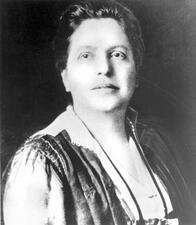
Feminism in the United States
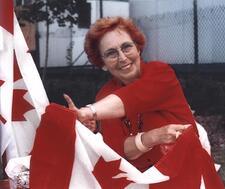
Sheila Finestone
Senator Sheila Finestone was an important figure in Canadian parliamentary history, founding the Coordinating Committee of Women Parliamentarians for the Inter-Parliamentary Union. She took up issues including human rights and served as president of the Quebec Federation of Women. A cornerstone of Canadian Jewish history, Finestone dedicated her life to advocacy and activism.
Helene Gans
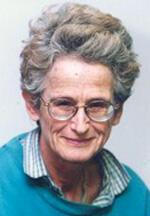
Ruth Gavison
Lillian Mellen Genser
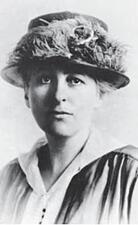
Josephine Clara Goldmark
Josephine Goldmark laid the groundwork for transforming American labor laws by amassing data that forced lawmakers to confront the painful realities of factory work. At the National Consumers’ League, she compiled data on working conditions, wrote articles, led campaigns for legislative reform, and recruited her brother-in-law, Louis D. Brandeis, to argue for those reforms in court.
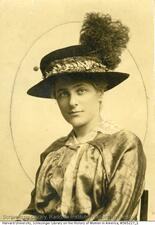
Pauline Goldmark
Pauline Goldmark was a social worker and activist, part of a group of women seeking the vote and reforms of the urban and industrial excesses of the early twentieth century. A pioneer in methods of social research central to reform efforts, Goldmark was indispensable to labor rights initiatives.
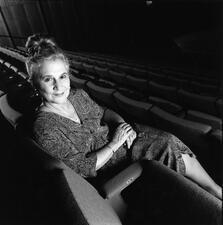
Beate Sirota Gordon

Sally Gottesman
Sally Gottesman, born 1962 in New Jersey and residing in New York, is a non-profit entrepreneur whose leadership and philanthropy have had a major impact on the Jewish feminist and justice landscape.
Mary Belle Grossman
In 1918, Mary Belle Grossman became one of the first two women admitted to membership in the American Bar Association. After the passage of the Nineteenth Amendment in 1920, she became one of Cleveland’s most successful political activists.
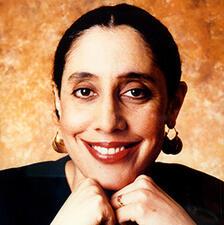
Lani Guinier
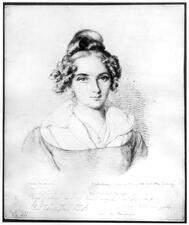
Habsburg Monarchy: Nineteenth to Twentieth Centuries
Jewish women in the Habsburg Monarchy experienced the stresses and strains of nineteenth- and twentieth-century Jewish life as Jews, as women of their particular social classes, and as inhabitants of the different regions of the Monarchy. In some regions, they modernized and acculturated, but the overwhelming majority remained deeply pious, traditional Jews.
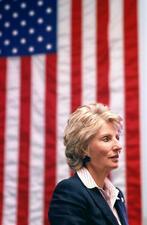
Jane Harman
The child of a refugee from Nazi Germany, Jane Harman began her career in law. After being elected in 1992, she spent 20 years as a vocal advocate of Israel, pro-choice legislation, and women’s issues as a Representative for California’s 36th Congressional District. After leaving Congress for the private sector, Harman held leadership positions in several prominent political organizations.

Health Activism, American Feminist
American women have been the “perennial health care reformers.” Women’s health activism has often coincided with other social reform movements. Since the late 1960s, Jewish women have helped create and sustain the women’s health movement through decades of substantial social, political, medical, and technological change.
Ellen Phyllis Hellmann
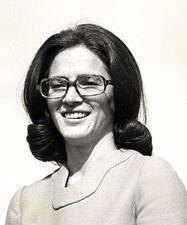
Elizabeth Holtzman
Elizabeth Holtzman pursued a public career epitomizing some of the most important trends in postwar American and Jewish life. In her successive roles as a congresswoman, Brooklyn district attorney, comptroller of New York City, and political commentator, she emerged as an effective and activist public servant, a forceful campaigner, and a champion of liberal and feminist causes.
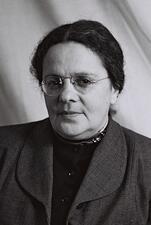
Beba Idelson
Beba Idelson was an Israeli politician and dedicated Zionist activist. She served as a member of the Knesset for sixteen years and was instrumental in shaping the character of the State of Israel, especially as it pertained to women’s rights.
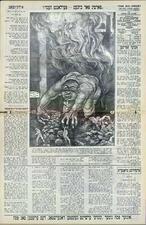
International Ladies Garment Workers Union
The International Ladies Garment Workers Union was founded in 1900 by eleven Jewish men who represented seven local East Coast unions with heavy Jewish immigrant populations. Initially excluded from the union, women began organizing and eventually developed bargaining power after the Uprising of the 20,000 in 1909.
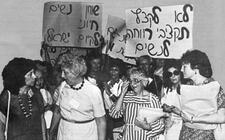
Israel Women's Network
The Israel Women’s Network (IWN) was founded in 1984 and is responsible for many of the feminist breakthroughs in Israel. Though the success of IWN led to an undesirable degree of politicization, it remains an active agent in Israeli feminism.
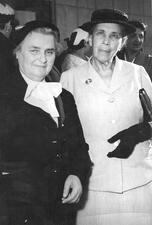
Rachel Kagan (Cohen)
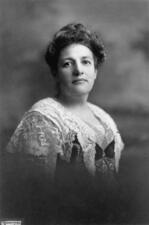
Florence Prag Kahn
Régine Karlin-Orfinger
Régine Karlin’s resistance activities would alone have warranted esteem and recognition, but she did not desist from further work. Totally bilingual in French and Dutch and even polyglot, since she was also proficient in both English and Russian, she had a brilliant career as a lawyer, characterized by her militant and unwavering support of causes that she considered just.

Yehudit Karp
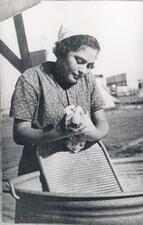
Kibbutz
Although the kibbutz was intended as an equalitarian, democratic utopia, attempts to achieve gender equality have been limited by traditional masculinities and male-controlled spheres and gender inequalities have persisted.

Kibbutz Ha-Dati Movement (1929-1948)
Beginning in 1929, the religious kibbutz (Kibbutz Ha-Dati) movement represented the confluence of progressive ideals of equality and collectivism and traditional customs of Judaism. As a result, women in the movement lived at a crossroads.


